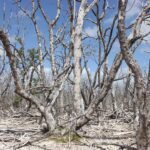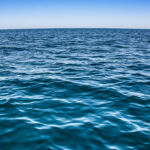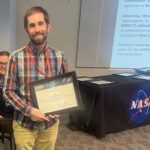For Immediate Release
February 14, 2018
Contact: Teri West, twest@essic.umd.edu
COLLEGE PARK, MD — Maryland Sea Grant awarded funding to two ESSIC researchers to work with Maryland communities to develop adaptation and community resilience indicators.
ESSIC associate research professor Melissa Kenney and assistant research professor Michael Gerst will lead the two-year project aimed at helping local coastal communities to assess, plan and evaluate climate adaptation actions. To support this effort, the team was additionally awarded a Maryland Sea Grant Graduate Fellowship. The team will welcome Daniel Teodoro (Ph.D. student, University of Maryland, Geographical Sciences) to explore the representation and role of stakeholders in the indicator development process.
Communities along Maryland’s Eastern and Western shores differ in size and level of urbanization, which provides a challenge in assessing resilience in a consistent way in communities throughout the state, Kenney said. However, identifying the major factors of resilience for coastal areas can assess whether communities are stronger as a result of their decisions.
This work builds on Kenney’s expertise in developing a shared vision, recommendations and prototypes for a national system of physical, natural, and socio-economic indicators. This research supported the proof-of-concept indicator system developed by the U.S. Global Change Research Program, which coordinates the global change research of 13 federal agencies.
Using a similar process, the team will develop the framework for a Maryland Climate Resilient Indicators system, focused on state needs and with local leaders.
“If it was easy it would have already been done,” Kenney said. “We can synthesize the information that already exists, but it’s more important to understand the ways that people think about community resilience. That way their understanding can be linked with our scientific understanding to identify indicators.”
Maryland Sea Grant funds research, such as this project, to support the protection of the state’s coasts and the Chesapeake Bay. It is a partnership between the University of Maryland system and the National Oceanic and Atmospheric Administration (NOAA).
“The great part about this funding is most of it is going out the door to impact society,” said Mike Allen, associate director or research and administration at Maryland Sea Grant.
Research to impact society is the focus of the Environmental Decision Support Science lab, led by Kenney and Gerst. The Environmental Decision Support Science Lab is a University of Maryland research team that “conducts multi-disciplinary social science research at the intersection of the environment, technology, and society.”
Media Contacts
Teri West
twest@essic.umd.edu
Earth System Science Interdisciplinary Center





